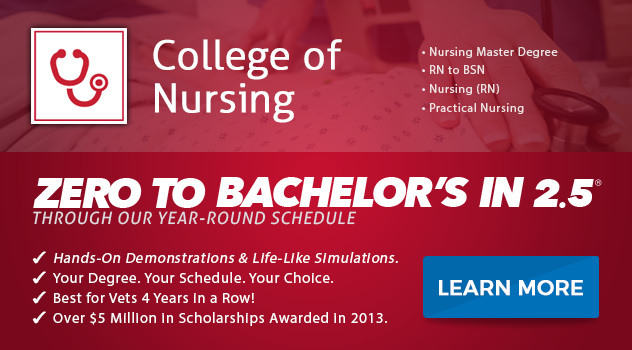
The 10 Most Misunderstood Facts about RN to BSN
Transitioning from a RN to a BSN can be likened to transitioning from a caterpillar into a butterfly: it gives the nurse wings to soar! Nurses with a BSN are known throughout the healthcare industry for their ethics, attention to detail, and communication skills. Similar to metamorphosis, the process of transitioning into a BSN can be slightly confusing. Continue reading to gain insight into a few commonly misunderstood facts about the process.
Are RNs and BSNs the Same?
A RN is a nurse who has earned an Associate Degree in Nursing (ADN) and passed the National Council Licensure Examination for Registered Nurses (NCLEX-RN). According to a National Survey of Registered Nurses, 45.4 percent of nurses became RNs by earning their associate degree. On the other hand, RNs who wish to further their education can obtain Bachelor of Science in Nursing (BSN).
Do RNs and BSNs Have the Same Knowledge?
RNs and BSNs both perform normal nursing duties such as operating medical equipment, recording patient symptoms on medical charts, etc. However, nurses with BSNs have the knowledge to conduct comprehensive and focused assessments of illness and health parameters in groups, individuals, and vulnerable populations.
Through a rigorous curriculum, BSNs learn to incorporate quality practices, safety practices, and evidence-based practice interventions. They are also trained to have a deeper understanding of public health policy, finance, and regulatory environments. Some of the most common coursework in a BSN program include:
- Microbiology
- Mental health nursing
- Surgical nursing
- Pharmacology
- Pediatric nursing
- Nursing theory
- Nursing fundamentals
- Anatomy and physiology
Do RNs and BSNs Have the Same Skillset?
While students can become RNs by completing a two-year program, students with a BSN have more skills and are able to provide patients with a higher level of care. BSN degree program curriculum is designed to instill leadership, bolster communication skills, and cultivate vital problem-solving skills [ ![]() Click to Tweet This ] that are necessary.
Click to Tweet This ] that are necessary.
Do RNs and BSNs Have the Same Opportunities?
Simply put, nurses with BSNs have more opportunities as a result of their increased knowledge and skills [ ![]() Click to Tweet This ]. BSNs can work in the public health sector, helping to shape health policies. Nurses with BSNs are trained leaders and naturally more apt to advance into health care management positions.
Click to Tweet This ]. BSNs can work in the public health sector, helping to shape health policies. Nurses with BSNs are trained leaders and naturally more apt to advance into health care management positions.
Are BSN Programs Turning Away Nurses?
While earning a BSN offers nurses several benefits, it's not as easy as signing up for classes. According to the American Association of Colleges of Nursing in 2011, baccalaureate and graduate programs turned away over 75,000 qualified students. The primary reasons for these turndowns were:
- Lack of clinical sites
- Lack of faculty
- Limited classroom space
- Budget constraints
- Clinical preceptors
When you begin your search for nursing school, look for one with no waitlist--or prerequisites.
Is Earning a BSN Actually Feasible for a Working RNs?
With the wide array of online, day, and night classes available, RNs can more conveniently attend classes while working a full schedule. Best of all, several employers offer tuition reimbursement and accommodate nurses working on their BSN.
#tbt Graraduations past: 2005- Bayside high school 2010- ADN fm NSU 2012- BSN fm ECPI https://t.co/kOoL9MFVXL
— D. Michelle (@Clearly_Niq) May 22, 2015
How Long Does It Take to Go from RN to BSN?
Interested in going from a RN to a BSN? By attending fulltime, students can complete their degree in as little as one year. Contact ECPI University’s College of Nursing today for more information on how you could earn your Bachelor of Science in Nursing degree in as little as 45 weeks. It could be the Best Decision You Ever Make!
DISCLAIMER – ECPI University makes no claim, warranty or guarantee as to actual employability or earning potential to current, past or future students or graduates of any educational program we offer. The ECPI University website is published for informational purposes only. Every effort is made to ensure the accuracy of information contained on the ECPI.edu domain; however, no warranty of accuracy is made. No contractual rights, either expressed or implied, are created by its content.
For more information about ECPI University or any of our programs click here: http://www.ecpi.edu/ or http://ow.ly/Ca1ya.


